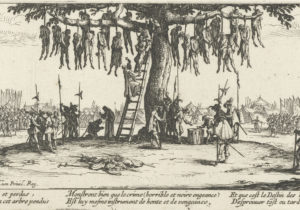It has now become out of fashion to value one’s nation as a sovereign entity made up of a history of unique shared values, traditions, and laws. The very idea of the nation-state seems to be losing its importance, if it is not considered something worse—a prejudiced relic of the past reflecting some grossly inflated sense of superiority and nationalism. In its stead, the two views which have come to permeate Americans’ perspectives are cosmopolitanism and—for millennials especially—identity politics.
A Pew Research poll conducted near the end of 2017 asked participants, “When you think about what it means to be American, which of the following is more important: having a mix of different cultures and values from around the world or having a culture grounded in Christian values?” A staggering 74 percent of Americans indicated that “having a mix of different cultures and values from around the world,” was more important, and only 22 percent related that having a culture grounded in Christian values is more important.[1]
Take a moment to consider the implications of this statement. Regarding their national identity, most Americans derive less significance from the cultural values of Christianity than they do from an undefined “mix of different cultures and values from around the world.” The values of Christianity, which recognize the universal equality and dignity of every human being as made in the image of God—values which had an enormous impact on the foundation of America’s governmental system and society—have lost any primacy for Americans at large. They have been replaced by an ambiguous affinity for a generic global identity.
The placement of primacy on global citizenship, of man finding his place and responsibility in a community of the world rather than the nation, is nothing novel. Cosmopolitanism, as it is otherwise known, seeks to subsume the nation into a “global community,” rather than finding belonging and significance in the formative nature of the traditions, culture, and values of a nation. Martha Nussbaum, a prominent American advocate of this view, relates that “we should give our first moral allegiance to no mere form of government, no temporal power,” but rather “should give it, instead, to the moral community made up by the humanity of all human beings.”[2]
While Nussbaum correctly identifies the universality of moral obligation, the idea that the existence of this morality gives all humanity a tangible “community” that deserves a primacy in determining human duties and identity is severely misguided. Such a community is inevitably vague, and, as Arthur Milikh has observed, gives an insufficient account of how human beings’ identities and character are formed.[3] Perhaps even more significantly, the rights and duties it ascribes to human beings are likewise ambiguously adumbrated, consisting primarily in the individual’s internal disposition toward the universal goals of “justice and goodness.”[4]
While broadly speaking a scourge of cosmopolitanism seems to have infected the American mind, identity politics is the plague that particularly ails the millennial imagination. The “global community” has failed to satisfy the need for belonging that is latent in the human heart, and for millennials, identity politics is the makeshift solution that attempts to fill in the gap. Identity labels are the ties that bind—and for many, these ties are perhaps significantly stronger than any ties they have to the United States of America, the nation. (According to a recent Gallup poll, only 33 percent of American millennials indicate that they are extremely proud to be Americans.) Identity politics teaches millennials to locate their community in terms of what systemic ills they have suffered, offering a citizenship of victimhood.
Unlike the community of the nation, which members are born into, the community of identity politics is inherently elective in nature, and as a result, its members define for themselves what their duties are (if any). More often than not, this means that duties do not require any substantive action from members, but simply demand the affirmation of fellow in-group members’ victimhood. Furthermore, the identity politics community leaves no clear body or standard to which group-members are accountable. Of course, within this picture America, the nation-state, is the ultimate enemy and unites them only in the sense that it is the universal cause of their grievances. Millennials are thus defining themselves in terms of how circumstances and other humans have treated them, and although they at least recognize the influence of America’s history, culture, and value system to some extent, their understanding of it is severely distorted. Together, these characteristics of the identity politics mindset foster an attitude of ingratitude that clamors for rights while neglecting duties.
In America as a totality, what are the results of this deadly blend of cosmopolitanism and identity politics? American citizens are losing their attachment to their government and see it as a corrupt institution unworthy of their allegiance. The shared history and foundational values of the United States are viewed as archaic relics of the past, which serve to give us an example of what was wrong, if anything at all.
Meanwhile, the poison of identity politics has brought the millennial cohort to view the United States as its universal oppressor, arrogant in its global role, and in need of repentance for the sins of the past, which necessitate its demotion of status and influence in the global sphere. On the conservative side of the spectrum, there can be the tendency to glorify the US and its legacy, while on the other hand, extreme leftists unnecessarily seek to emasculate America’s global role due to its past mistakes.
A healthy Christian approach should fall somewhere in between, embracing both realism and optimism, recognizing both the significance and limitations of the US position, function, and role as a nation-state. The US was founded on a unique vision recognizing the dignity, rights, and duties of human beings as created in God’s image, and has been shaped by the unique history, traditions, and shared values stemming from that vision. These elements have coalesced to give the US a unique capacity to further good in the global sphere, and should be beneficially formative to the character of the American citizenry.
For Christians, a sense of belonging and identity should ultimately be found in their place and role in God’s kingdom. This does not replace the Christian’s role within the nation-state, but rather functions in harmony with it. America as a nation-state is the best option available to counterbalance the totalitarian tendency of the modern bureaucratic state, which cosmopolitanism will only exacerbate. Conversely, the community-seeking enterprise of identity politics not only fails to provide a tangible institution of accountability and morality, as well as a formative structure of the American nation-state, but ultimately will only prove more divisive should it continue to subsist in America’s millennial imagination.
—
Alexandra Nieuwsma graduated summa cum laude from Westmont College with a BA in political science. She was formerly a fellow at the John Jay Institute and has worked as a research assistant for Senior Fellow and George P. Shultz Distinguished Scholar Abraham Sofaer at the Hoover Institution at Stanford University. Alexandra was named the Outstanding Senior 2017 by the political science faculty of Westmont College. Currently, Alexandra is working as a research assistant in Washington, DC. When she’s not researching or writing, she enjoys playing the harp and piano, and composing music.
Photo Credit: Children of the World Dream of Peace, mural at the Denver International Airport, by Leo Tanguma, 2007. Currently in storage during construction. Source: Denver International Airport.
[1] PRRI American Values Survey, October 2017. Accessed via iPoll.
[2] “Kant and Cosmopolitanism,” by Martha Nussbaum. From The Cosmopolitan Reader, pg 31. Dec 28, 2010.
[3] See “Civility and Rebarbarization.” National Affairs. Winter 2018. Arthur Milikh.
[4] Ibid







 Sponsor a student for Christianity & National Security 2024
Sponsor a student for Christianity & National Security 2024